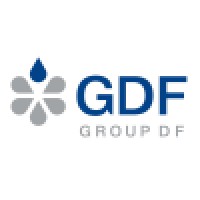
Group DF
Group DF is a diversified international group of companies operating in 11 countries across Europe and Asia. Our core areas of operations are fertilizer and titanium businesses, gas distribution and banking. Other businesses of the Group currently include agribusiness, media business, soda ash production, energy infrastructure development and real estate. Group DF actively develops its investment portfolio and expands into new business segments. Currently, we are one of the leading chemicals and energy sectors investors in Eastern Europe. Founded in 2007 by Dmitry Firtash, a prominent Ukrainian investor and businessman, Group DF is one of the largest investors and employers in Ukraine, the core country of our operations. We develop our business in a sustainable way by contributing to preservation of ecosystems, capacity building and improving the well-being of our communities. Group DF International is the Corporate Centre of Group DF which determines the general direction and strategy of the Group and its businesses, as well as preparing and justifying major strategic and investment decisions for the Group. Group DF attracts qualified, proactive and loyal employees to the Group’s corporate and industrial operations in Ukraine and other countries.






